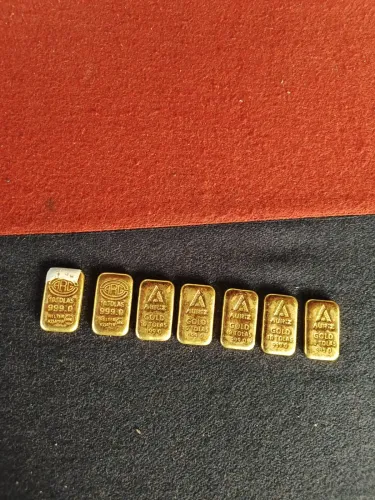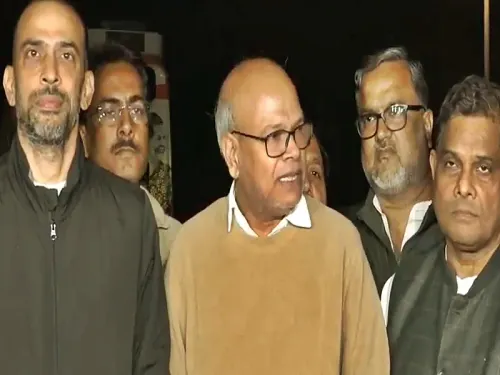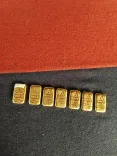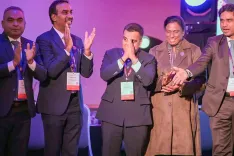Is Tamil Nadu Setting Up 14 New Fishnet Collection Centres?
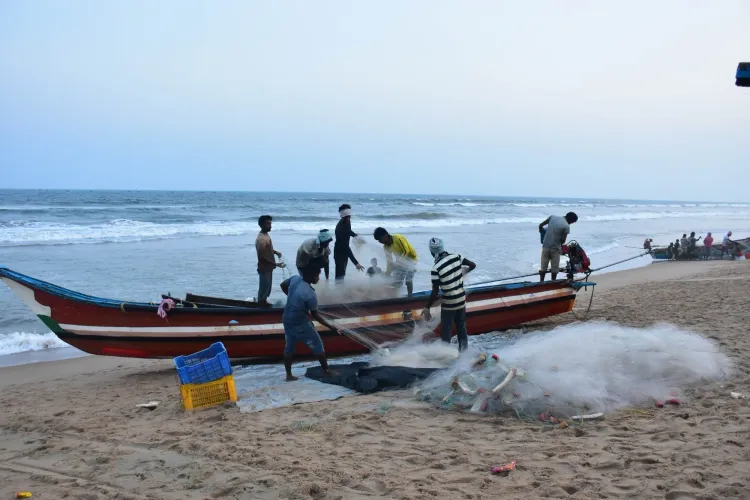
Synopsis
Key Takeaways
- Tamil Nadu is launching 14 new fishnet collection centres across coastal districts.
- The initiative aims to combat marine pollution and promote sustainable fishing.
- A successful pilot centre collected over 18.5 tonnes of marine litter.
- Community involvement is crucial for effective coastal conservation.
- Enhanced EPR mechanisms are necessary for managing marine waste.
Chennai, June 5 (NationPress) In an effort to combat marine pollution and encourage sustainable fishing techniques, the Tamil Nadu Environment Department is set to create 14 new fishnet collection centres throughout the coastal districts of the state.
This initiative is the result of the successful implementation of a pilot fishnet collection centre established at the Kasimedu Fishing Harbour in Chennai in August 2024.
As reported by officials, the pilot centre had collected over 18.5 tonnes of marine debris and Abandoned, Lost or Discarded Fishing Gear (ALDFG) by May 2025.
As part of an incentive program, ₹7.21 lakh has been allocated to fishermen involved in these recycling efforts.
“These materials would have otherwise remained in the ocean, causing serious damage to marine life and ecosystems,” stated an official from the Environment Department, adding, “The success of the pilot project demonstrates that community-driven recycling can significantly contribute to coastal conservation.”
A recent evaluation conducted across 64 coastal villages in 13 districts of Tamil Nadu revealed that ALDFG is the main contributor to beach litter, with an average density of 1.14 items per square metre.
This highlights the urgent need to enhance Extended Producer Responsibility (EPR) mechanisms and improve waste reception facilities at fishing harbours.
ALDFG includes discarded fishnets, ropes, traps, buoys, and plastic fishing gear.
These items not only damage marine habitats but also create entanglement and ingestion risks to marine animals, significantly contributing to biodiversity loss and coastal degradation.
The findings are in line with a thorough research study published in the Elsevier Marine Pollution Bulletin in February 2025.
Conducted by the Suganthi Devadason Marine Research Institute (SDMRI) in partnership with the Tamil Nadu Pollution Control Board (TNPCB) and Italy’s National Fishing Technology and Operations Team (NFIFO), the study investigated litter in 52 coastal villages.
The research indicated that discarded fishing gear accounted for 47.46 percent of total beach litter, followed by plastics at 39.64 percent and non-plastic waste at 12.9 percent.
Litter density varied from 0.18 to 6.3 items/m², with an average weight of 0.05 kg/m².
A total of 6,132 debris items, weighing 201 kg, were collected from a 1,040-metre shoreline surveyed across 13 districts.
Pudukkottai district exhibited the highest litter concentration at 2.68 items/m², followed closely by Villupuram.
In addition to fishing-related waste, beaches also contained debris from recreational activities, including bottle caps (25 percent), food wrappers (19 percent), and plastic bags (12 percent), along with paper, cardboard, and glass bottles.
Through the expansion of fishnet collection centres, Tamil Nadu aspires to create a cleaner and more resilient coastline while promoting environmental responsibility among fishing communities.

